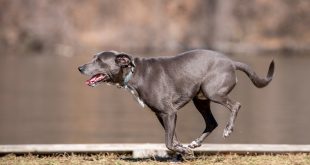This post may contain affiliate links. Please read our disclosure.
Dogs are curious creatures, and if they’re not being carefully monitored, it’s possible that they may consume something that is unsafe. One of the most common items to watch out for in this regard is anise seeds.
These small black seeds have a sweet taste with a licorice flavor, which can be tempting to dogs who love treats. But while these tiny little things might seem harmless at first glance, there are some serious risks associated with them.
So let’s take a closer look at what you should know about your dog eating anise seeds so you’ll have all the information necessary to protect him from harm!
Article Contents
Can Dogs Eat Aniseed?
Yes, dogs can eat aniseed, but only in small amounts.
Aniseed is a spice that has a licorice-like flavor. It’s safe for dogs to eat, but it should only be given in small doses because it can be harmful if eaten in large quantities. It contains anethole, which is toxic to dogs and can cause liver damage.
How much anise can a dog have?
This depends on the size and weight of your dog. A maximum of 2 sprinkles is usually fine for a six-pound dog. On average, anything above 1 teaspoon would be plenty to cause toxic symptoms.
In general, never give your pet household spices or sugars as it can lead to toxicity. If you’re looking for ways to spice up food for your pup, try going to a pet store and checking out some quality dry kibble mix with added healthy treats instead!
We recommend always asking the vet before giving your dog anise.
A number of cases have shown that while dogs may not be able to taste sweet, bitter, salt, or sour flavors they can sense these things through their sense of smell and experience aversion to tastes they abhor.
This is one reason vets often say not to feed chocolate or things with too much garlic or onion powder unless it’s mixed in with something else.
And while alcohol is alcohol regardless of how it’s ingested, there are reasons people group “dog drunk” in with legendarily horrible human drunkenness because dogs quickly get addicted and withdrawal from long-term use leads them into a maze of anxiety and depression issues.
Star Anise for Dogs
It’s not a good idea to give star anise or any other food that has the potential to be toxic if consumed in large quantities, because it increases their risk of getting into trouble.
Dogs are very much capable of disposing of too many calories by eliminating them through urination – much more so than humans who rely on digestion which is far slower.
So even though there may not be “enough” for them to feel sick from one single meal or day, they might end up feeling sick over time if they eat too much or you feed them star anise often enough.
The same goes for sugar alcohols like xylitol and sorbitol that are otherwise harmless when eaten by themselves but can cause stomach upsets when mixed together with other foods.
Anise Dog Toy
The material used in the anise dog toy is 100% natural rubber and food-grade paint. The rubber does not contain latex, so it is perfect for people who have a sensitivity to latex.
The hollow center of the ball can be filled with small treats or kibble, to engage both your pet’s senses and their stomach!
FAQs on Anise for Dogs
Can dogs have anise-flavored cookies?
Yes. However, it is advised to not give your dogs too many anise-flavored cookies because they are high in monosodium glutamate or MSG.
The FDA requires that manufacturers voluntarily label food products containing MSG if the food product contains more than 10 parts per million of MSG.
Even though dogs can have anise-flavored cookies, you should keep the number of cookies supervised and limit them each day to just one.
What is the dog equivalent to catnip?
Anise is the dog equivalent to catnip, as it contains an essential oil that has a stimulating effect on dogs.
The oil is found in the fruit and seeds of the anise plant, and when ingested, it triggers a response in a dog’s brain that is similar to the one caused by catnip in cats.
This makes anise a great tool for getting your dog to relax or for treating certain behavioral issues.
Does Anise make dogs high?
Yes, anise may make some dogs high. Anise is a member of the parsley family and is used to flavor food. It has a licorice-like taste and smell.
Some people believe that anise can make dogs high for long. There is no scientific evidence to support this claim, but it is best to avoid giving anise to your dog just in case.
All you need to know is that some dogs are more sensitive to anise than others. It’s not usually a major concern, but it’s worth talking to your vet about if you’re worried about it!
READ MORE: Can dogs eat amaranth grains?
 Petnile Comprehensive Pet Care Guides
Petnile Comprehensive Pet Care Guides



